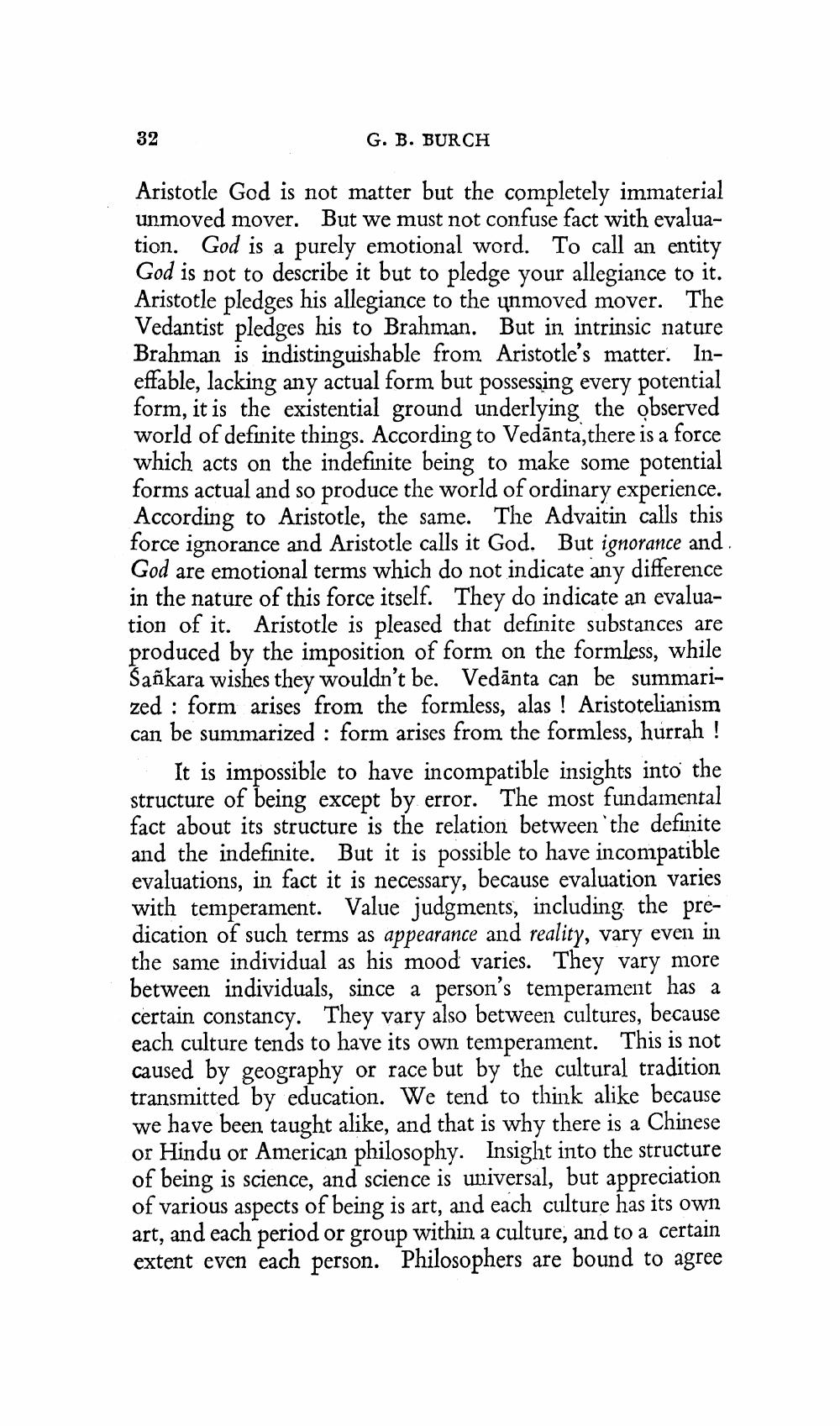Book Title: Definite And Indefinite Author(s): George Burch Publisher: George Burch View full book textPage 8
________________ 32 G. B. BURCH Aristotle God is not matter but the completely immaterial unmoved mover. But we must not confuse fact with evaluation. God is a purely emotional word. To call an entity God is not to describe it but to pledge your allegiance to it. Aristotle pledges his allegiance to the unmoved mover. The Vedantist pledges his to Brahman. But in intrinsic nature Brahman is indistinguishable from Aristotle's matter. Ineffable, lacking any actual form but possessing every potential form, it is the existential ground underlying the observed world of definite things. According to Vedānta, there is a force which acts on the indefinite being to make some potential forms actual and so produce the world of ordinary experience. According to Aristotle, the same. The Advaitin Calls this force ignorance and Aristotle calls it God. But ignorance and God are emotional terms which do not indicate any difference in the nature of this force itself. They do indicate an evaluation of it. Aristotle is pleased that definite substances are produced by the imposition of form on the formless, while Šañkara wishes they wouldn't be. Vedānta can be summarized : form arises from the formless, alas ! Aristotelianism can be summarized : form arises from the formless, hurrah ! It is impossible to have incompatible insights into the structure of being except by error. The most fundamental fact about its structure is the relation between the definite and the indefinite. But it is possible to have incompatible evaluations, in fact it is necessary, because evaluation varies with temperament. Value judgments, including the predication of such terms as appearance and reality, vary even in the same individual as his mood varies. They vary more between individuals, since a person's temperament has a certain constancy. They vary also between cultures, because each culture tends to have its own temperament. This is not caused by geography or race but by the cultural tradition transmitted by education. We tend to think alike because we have been taught alike, and that is why there is a Chinese or Hindu or American philosophy. Insight into the structure of being is science, and science is universal, but appreciation of various aspects of being is art, and each culture has its own art, and each period or group within a culture, and to a certain extent even each person. Philosophers are bound to agreePage Navigation
1 ... 6 7 8 9 10 11 12
